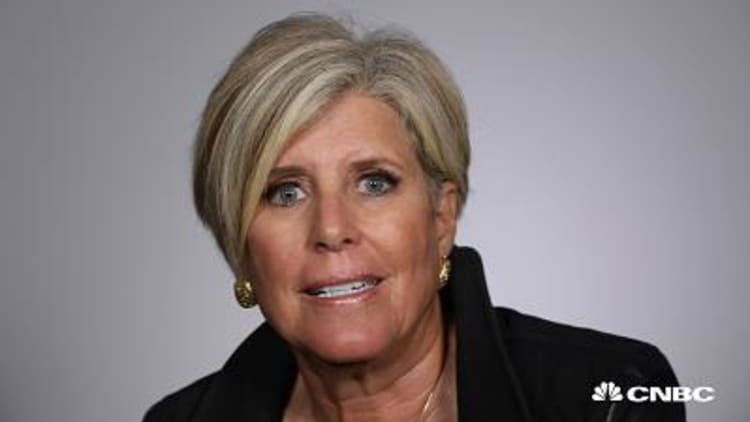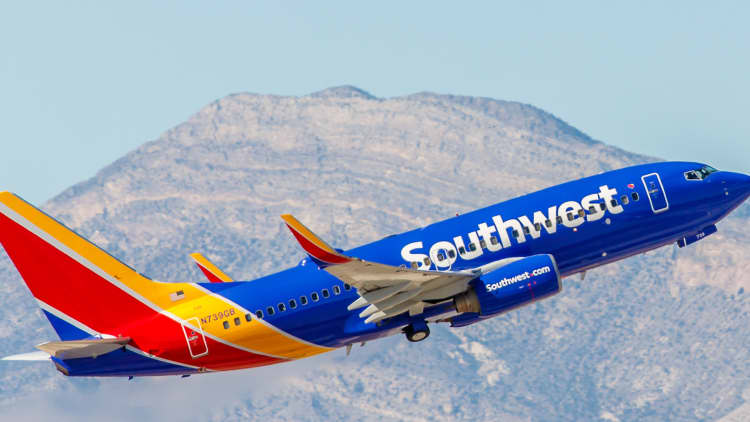It seemed like an epic blunder: United Airlines announced that it was replacing a standard bonus with a lottery that would give nothing to most of its roughly 90,000 workers while awarding lavish prizes, like $100,000 in cash and Mercedes-Benz sedans, to a few lucky winners.
United had hoped the sweepstakes approach would "build excitement and a sense of accomplishment." But after workers deluged the company with hostile comments, the airline said last week that it was "pressing the pause button on these changes."
The fiasco pulled back the curtain on the widespread use of gamelike techniques for motivating employees.
More from The New York Times:
United Airlines pauses lottery for bonuses after employees rebel online
How much would you put up with to avoid United Airlines?
Reporter to Trader Joe's: Are we having fun yet?
While employers have relied on such practices for decades, the methods have become increasingly sophisticated in an age when companies can collect more data about employee behavior than ever before, and as video game technology has proliferated.
Recent studies show a rapidly growing market for so-called gamification software, some of which allows workers to earn points and badges by completing certain tasks or performing well.
Defenders say such practices can be useful — if they are designed to make employees feel more engaged and invested in their work, not to save money. But to skeptics, the United program illustrated a deeper problem with game-like motivational methods.
"Shareholders and management get the monetary rewards, and 'meaning' and 'excitement' are consolation prizes that go to workers," said Caitlin Petre, an assistant professor of media studies at Rutgers University who has examined similar practices at media companies. "This is very much in line with my understanding of how the gamification trend in workplaces operates."
Whatever one thinks about the ethics of workplace games, few question their potential to influence workers in certain circumstances. A pile of psychological research has shown that they can be cheaper and more effective at motivating workers than straight cash.
An experiment published in 2012 in the American Journal of Health Promotion showed that a far higher proportion of employees completed a health-risk assessment when they got a modest chance to win up to $125 in a lottery than when they would receive a $25 gift certificate.
"Lotteries in general may be more effective than fixed payments, as people tend to overweigh small probabilities in making decisions," the paper noted.
Other studies have shown that simple compliments and recognition, which gamification software frequently incorporates, may be more effective than cash in motivating workers. An experiment at a semiconductor plant, published in 2014, showed that workers' productivity rose more if they were rewarded with a note thanking them for their "hard work and great achievements in yesterday's shift" than if they were given a cash bonus worth about $25.
In principle, there is no moral problem with seeking cheaper ways to motivate workers. Compensation and motivation are two distinct concepts, and a company could decide to pay its workers fairly — or exceedingly generously — then deploy lotteries and praise to motivate them to perform better.
"There are two things to consider," said Kristen Berman of the behavioral consulting nonprofit Irrational Labs. "One is pay — what do people get paid, what should they get paid, what do they expect to get paid. The second is motivating people to do things we want them to do in the workplace."

That distinction is often easiest to enforce when the tasks that employers link to gamelike rewards are narrow, and not central to a worker's job description.
Charlotte Blank, the chief behavioral officer of Maritz, which designs employee motivation and incentive programs, said lotteries could be an effective way to pique interest among salespeople in a new product but should not replace crucial components of pay.
In practice, however, many companies appear to have a hard time resisting the urge, as United did, to blur the lines between wages and motivation — to shift from paying workers in cash to paying them with less cash and more psychic income.
"Why wouldn't they?" said Karen Levy, an assistant professor in the department of information science at Cornell University, who has studied gamelike incentives. "It's the structure of the corporation" to want to minimize labor costs.
Perhaps most prominent, so-called gig economy companies like Uber have frequently used gamelike incentives as a cheaper alternative to traditional bonuses.
Uber's operations managers have sometimes cut back on straight cash bonuses and hourly guarantees in favor of raffles and other contests, for which the prize could be a few hundred dollars or tickets to a sporting event. The goal was to get drivers onto the road during high-demand periods at a lower cost.
More traditional companies have relied on similar tactics. For example, T-Mobile sometimes puts in place short-term gamelike incentives on top of its standard bonus program. In its Wichita, Kan., call center this month, agents who hit certain performance targets receive a scratch-off ticket with a dollar value attached to it, redeemable for a variety of prizes. The company has previously rewarded agents for certain achievements with time inside a "money machine" that blows around certificates redeemable for prizes, which they try to grab.
"It sure saves them money to do this instead of pay increases," said Justin Smith, a T-Mobile customer service agent.
Mr. Smith said that the company's wage increases for his job category had barely kept up with inflation and that T-Mobile effectively reduced compensation for high performers in his department last year when it changed its standard bonus from a flat monthly payment to one tied to the number of hours they work.
"They tried to make it seem like this is the best way to do it," Mr. Smith said. But, he said, "Even if you worked every hour scheduled, it would still be 15 to 20 percent less than the old system."

A T-Mobile spokeswoman said: "We offer market-competitive base pay, one-of-a-kind stock grants and bonuses. On top of that, our leaders periodically recognize performance in other ways that best resonate with their teams."
Often companies don't actually lower compensation but push workers to do more for the same pay by using games and gamelike incentives. To motivate thousands of employees to flag translation errors in foreign-language editions of Windows, Microsoft once set up a game that allowed the employees to advance to different levels by reviewing screenshots, then displayed each worker's level on a leader board.
"Not only did they do it above and beyond their work responsibilities," wrote Kevin Werbach, a University of Pennsylvania business professor, and Dan Hunter, then a professor at New York Law School, in a book on gamification, "but a large number of them described the process as enjoyable and even addicting."
Other employers, including the Walt Disney Company and Gawker, have used scoreboards and leader boards to drive up productivity by giving workers constantly updated performance information that compares them with one another.
"In effect, that is lowering compensation," Ms. Petre said. "It has the effect of driving more and more output as people's competitive instincts kick in."
In the end, what may have set United apart was not that it tried to replace a portion of traditional compensation with "excitement" but the company's openness about the trade-off.
In the gig economy, said Alex Rosenblat, a researcher at the Data & Society Research Institute who is the author of the forthcoming book, "Uberland," non-monetary rewards that rein in labor costs, or incentives aimed at individual drivers, can work because drivers rarely have enough information to piece together the larger picture — sometimes even their own bottom line.
"But in the United case," Ms. Rosenblat said, "everyone knows what they're earning."
Like this story? Like CNBC Make It on Facebook!
Don't miss: Credit card debt hits record high of over $1 trillion—but one trick can save you thousands



